Where does Wikipedia's money come from, and where does it go?
Written by: Bai Ding & Wu Yue, Geek Web3
When it comes to public goods in the internet age, Wikipedia may be the most representative case. This world-renowned online encyclopedia was co-founded by Jimmy Wales and Larry Sanger in 2001, aiming to provide a freely accessible knowledge platform through the internet, "allowing everyone to freely access the knowledge of all humanity."
To this day, Wikipedia has undeniably achieved this goal. With its "user-uploaded content" open editing model, anyone can contribute content online, allowing Wikipedia to gather the "wisdom" of the world.
As of now, the platform has entries in over 300 languages, with more than 62 million entries, over 14 million edits occurring each month, and the English Wikipedia alone has a data volume exceeding 20TB, with monthly visits reaching over 6 billion, consistently ranking among the top 10 most popular websites globally. With these statistics, Wikipedia is undoubtedly a benchmark for knowledge repositories in the Web2 era.
In the current era of rapid AI development, the value of Wikipedia is even more immeasurable. Computer scientist Jesse Dodge has stated that Wikipedia is the largest single source of information for the underlying large language models of ChatGPT, with its content possibly accounting for 3% to 5% of the data captured by LLMs. Simon Fraser University faculty member Nicholas Vincent even said, "Without Wikipedia, generative AI would not exist."
What is most surprising is that such a large-scale and successful operation as Wikipedia is not a commercial private entity; it is even "the largest non-commercial advertising-free website in the world." This sounds quite incredible, as most internet platforms of similar scale rely on advertising revenue or burn cash to survive. For Web2 public goods, which generally struggle with monetization and have shorter lifespans, operating on a non-commercial model while maintaining such a large scale is almost an insurmountable challenge.
Katherine Maher, CEO of the Wikimedia Foundation, stated in 2021: "If Wikipedia had not been founded in the early 21st century, it would not have been able to exist in today's fragmented and commercialized internet world."
How did the non-profit Wikipedia achieve its current influence? The mystery is worth exploring. With an interest in the study of public goods, we conducted a simple investigation into Wikipedia. Given that this case has strong implications for public goods operators, especially content output platforms, we recommend reading this article. Below, we will elaborate on Wikipedia's content production model, cash flow sources and expenditure distribution, and the controversies surrounding power and finance from multiple perspectives.
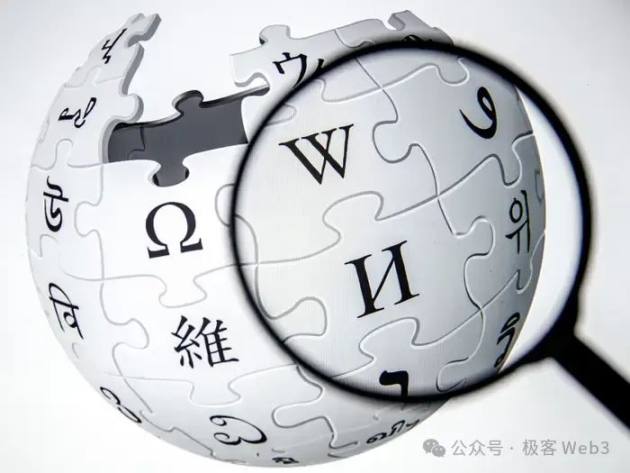
UGC: A Revolutionary Content Generation Model
Wikipedia's open editing model can be traced back to its early days, with its predecessor being Nupedia, which aimed to establish a high-quality online encyclopedia. However, Nupedia's editing process was very slow, with uploaded content needing to go through multiple levels of review and expert approval, severely limiting the speed of content generation. The number of articles included in the project was minimal in the year following its establishment in 2000.
To improve content production efficiency, Nupedia's founder Larry Sanger proposed a new idea and developed a knowledge network system called "Wiki," which allowed users to freely upload content, enabling anyone to participate in editing entries, leading to the creation of what we now know as Wikipedia.
From a product perspective, a wiki is a knowledge network system where the cost of creating, changing, and publishing wiki text is much lower than that of HTML text. Additionally, the wiki system supports community-oriented collaborative writing and provides simple tools for community communication, which helps share knowledge in specific fields.
In the book "The World is Flat," the author directly refers to this model as "community-uploaded content," while in more literature, the content editing model introduced by Larry Sanger is referred to as UGC (User-Generated Content), which is often driven more by interest than by substantial material incentives.
UGC quickly broke the traditional model of encyclopedias being dominated by experts and publishers, allowing for the flexible inclusion of non-academic but noteworthy events, thus rapidly capturing the hearts of a wide range of users. This bottom-up "crowdsourcing" model allowed Wikipedia's information to extend quickly into various areas. After its launch in January 2001, Wikipedia quickly surpassed Nupedia, which was shut down in 2003, and the Encyclopædia Britannica also announced the cessation of print publication in 2012 due to the impact of Wikipedia.
Currently, millions of volunteers are still involved in editing and maintaining content on the Wikipedia platform, with about 120,000 active editors (those who edit at least once a month), and approximately 300 edits occurring on the site every minute.

While UGC created the conditions for Wikipedia's rise, its side effects are also evident. In an open and free editing model, ensuring the accuracy of content is an unavoidable pain point. Wikipedia has experienced countless incidents of entry fabrication or destructive editing, with the most common issues including the insertion of false information, advertising copy, or politically biased content, among which the "John Seigenthaler entry fabrication incident" is the most famous. Addressing these destructive behaviors is indeed a daunting and difficult task.
Wikipedia's current solution is to provide a function that allows reverting entry content to previous versions, with a history of revision actions available for each entry. Anyone who discovers malicious changes can revert the entry to an old version.
Statistics show that obvious malicious editing behaviors can be easily detected and removed. According to experimental tests, such corrective actions can be triggered in an average of a few minutes. Wikipedia now widely uses bots to correct simple written errors or inappropriate content, but destructive behaviors that are harder to detect still require human intervention.
For issues that require human manual intervention, Wikipedia has established a three-tiered protection system to execute as decentralized as possible. First, when malicious editing occurs, the most common approach is "edit, revert, discuss." If user A edits an entry and user B has doubts, they can revert it to the old version and then explain their differences on the discussion page to seek consensus.
Sometimes, both parties in a dispute can become entrenched, repeatedly engaging in "edit, revert, edit, revert," which necessitates the intervention of higher-privilege roles, commonly known as administrators and patrollers.
Administrators have higher privileges to delete entries, protect pages, prevent edit conflicts, and handle complaints, while patrollers' main task is to quickly review and mark newly published content, flagging problematic content for review and reporting it to administrators or higher-level volunteers.
Additionally, administrators can set entries that are prone to malicious edits (such as entries about public figures) to partial or full protection status, restricting editing permissions to maintain the stability of the entry's status. Administrators also have the authority to ban users who maliciously edit entries.
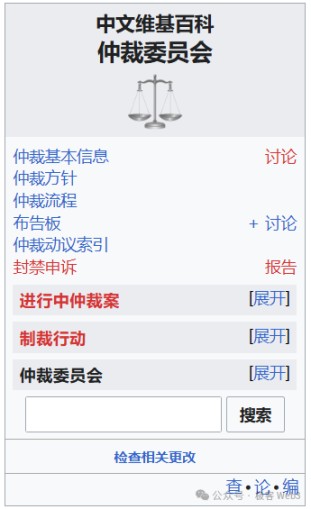
For more complex situations, Wikipedia has an arbitration committee composed of senior volunteers, serving as a last resort. Committee members are all experienced volunteers, and their decisions are based on Wikipedia's editing guidelines and community norms, ensuring that content meets standards of neutrality and verifiability.
In terms of open-source content licensing, Wikipedia employs several Creative Commons licenses, the most important of which is the CC BY-SA 4.0 license, which allows users to freely share or adapt content but must meet two conditions:
The original author's name, work source, and link must be indicated.
If the work is adapted, the adapted work must also be published under the CC BY-SA 4.0 license, facilitating further user-generated content. In addition to CC BY-SA 4.0, some older content and images are still subject to the GNU Free Documentation License (GFDL).

Cash Flow Analysis: Can Babel Tower Stand on Donations Alone?
Cash Flow Sources
For large internet platforms with a significant user base, obtaining stable cash flow is a major headache. Wikipedia, which emphasizes non-commercialism and free reading with a neutral value proposition, is almost impossible to monetize through advertising or membership models like commercial platforms such as Twitter and YouTube. Moreover, Wikipedia lacks strong private institutions providing substantial subsidies, raising curiosity about how it secures cash flow to maintain operations.
To illustrate, we can compare it with Baidu Baike. Taking the entry for "medical insurance" as an example, it is easy to see that Baidu Baike heavily relies on advertising revenue. This commercial monetization model often leads to biased or inaccurate information, as exemplified by the 2016 Wei Zexi incident, which was a victim of this model, ultimately prompting the Cyberspace Administration and other departments to order relevant internet platforms to reduce the proportion of commercial promotions.
According to the measurement standards in Vitalik's "Revenue - Evil Curve," the Wei Zexi incident is a typical case of the negative externalities brought about by the excessive monetization of public goods. In contrast, Wikipedia's non-commercial policy makes it more neutral, allowing it to retain more positive externalities, but is this model truly sustainable?
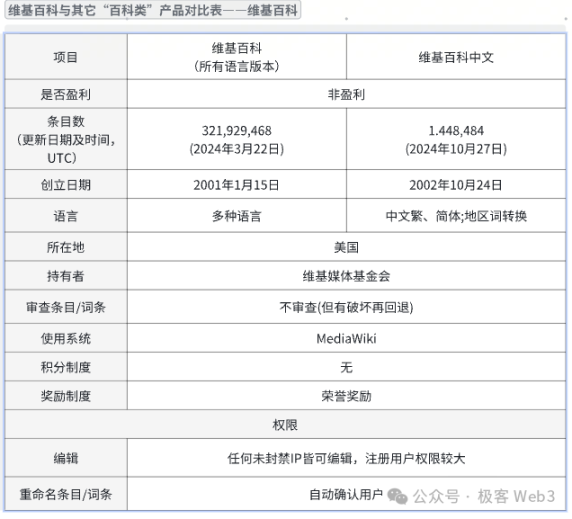
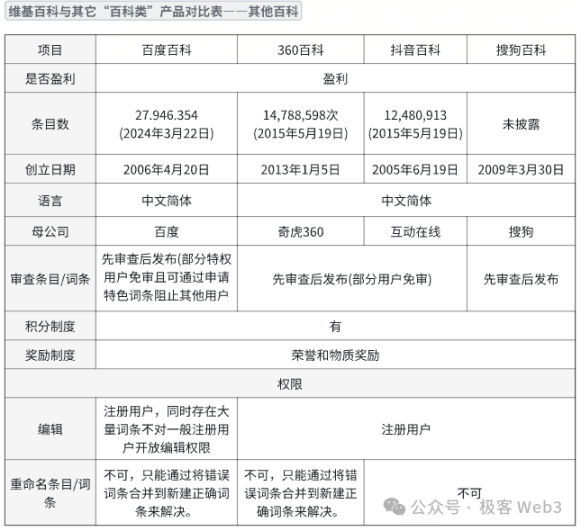
Comparison Table of Wikipedia and Other "Encyclopedic" Products
To address the sustainability issue of Wikipedia, we must trace back to the organization behind it—the Wikimedia Foundation. Established in 2003 and headquartered in San Francisco, the foundation currently has over 500 employees. Its funding sources primarily come from donations and grants. According to its publicly disclosed materials, the Wikimedia Foundation's revenue sources include the following:
First, user donations. Every year, the Wikimedia Foundation launches fundraising campaigns, calling on users worldwide to donate to support the platform's operations. Most of these donations are relatively small, but the number of donors is large, accounting for a significant proportion of the foundation's revenue. Most users encounter a banner on their screens twice a year while browsing Wikipedia, requesting donations to maintain the platform's operation.
According to the Wikimedia Foundation's data for the 2022-2023 fiscal year, the foundation's total revenue reached $180 million, with small user donations accounting for over 90% of the funding sources. On average, each donor contributes about $11, with approximately 7.5 million people worldwide supporting Wikipedia in this way.
In addition to individual donations, the Wikimedia Foundation also accepts funding from some large corporations and foundations, such as Google, Microsoft, and the Gates Foundation. Google and the Alfred P. Sloan Foundation alone have donated over $3 million to Wikipedia.
Furthermore, the Wikimedia Foundation actively applies for grants for public welfare projects. A typical example is the "Reading Wikipedia in the Classroom" project, which aims to help teachers and students worldwide better utilize Wikipedia for teaching. Initially piloted in Nigeria, Bolivia, and the Philippines, it has now expanded to over 40 countries, helping people in these regions effectively use Wikipedia in the classroom. Through this project, the Wikimedia Foundation has successfully received sponsorship from multiple sources.
To ensure sustainable development, the Wikimedia Foundation is also actively exploring self-generated economic sources beyond donations. In October 2021, the foundation launched the "Wikimedia Enterprise" service, primarily providing specialized paid APIs to large tech companies like Google and Amazon. This service has brought additional revenue to the foundation. In the 2022-2023 fiscal year, Wikimedia Enterprise generated millions of dollars in revenue, with Google alone paying over $2 million to Wikipedia. The paid API business is expected to become an important driver of revenue growth for Wikipedia in the future.
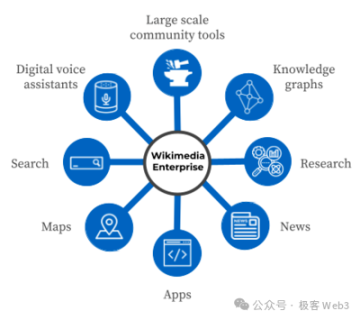
The foundation also operates a Wikimedia online store (store.wikimedia.org), selling merchandise featuring the Wikipedia logo, such as T-shirts, mugs, and stickers. Although this revenue stream is relatively small, it is one of the supplementary income sources for the foundation, generating about hundreds of thousands of dollars in additional revenue each year.
In addition to the stable funding sources explicitly mentioned above, we can also see from the balance sheet that the Wikimedia Foundation participates in some investment activities. In 2023, the Wikimedia Foundation's investments yielded approximately $6.5 million, although in 2022, its investment activities incurred losses of over $11 million.
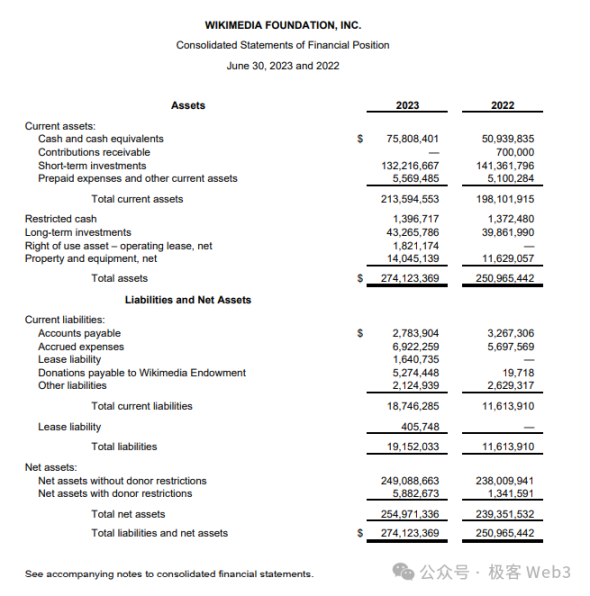
Expenditure Distribution
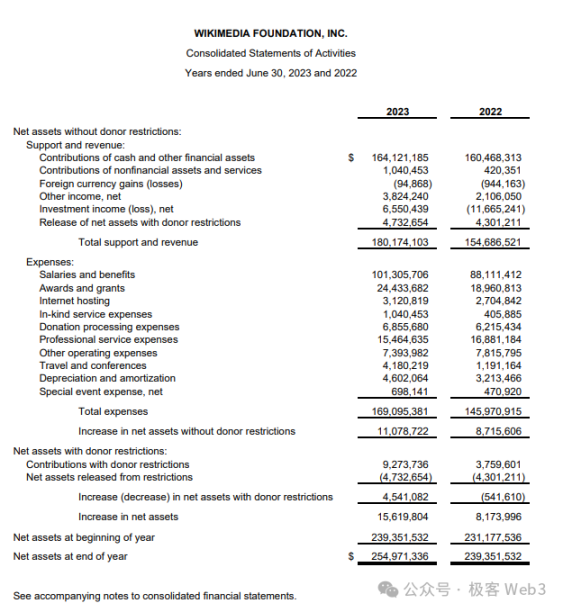
The Wikimedia Foundation has detailed budget planning and financial audits for all fund usage, with each significant expenditure undergoing multiple approvals to ensure reasonableness and transparency. The foundation's financial reports are also regularly made public, allowing donors and the public to understand the specific use of funds.
According to the Wikimedia Foundation's reports, we can see its specific expenditure situation; in the 2022 fiscal year, its expenditures reached $169 million, with employee salaries and benefits accounting for 60% of the expenses. This funding is primarily used to pay the salaries and related benefits of the technical team and community staff, covering expenses for server maintenance, software updates, data security, and other work.
As the world's largest online encyclopedia, Wikipedia needs to handle vast amounts of data and traffic, and maintaining and upgrading servers and data centers is a significant expense. As of 2024, Wikipedia has established six data centers worldwide, located in the United States, the Netherlands, France, and Singapore, to ensure the stable operation of Wikipedia and other Wikimedia projects.
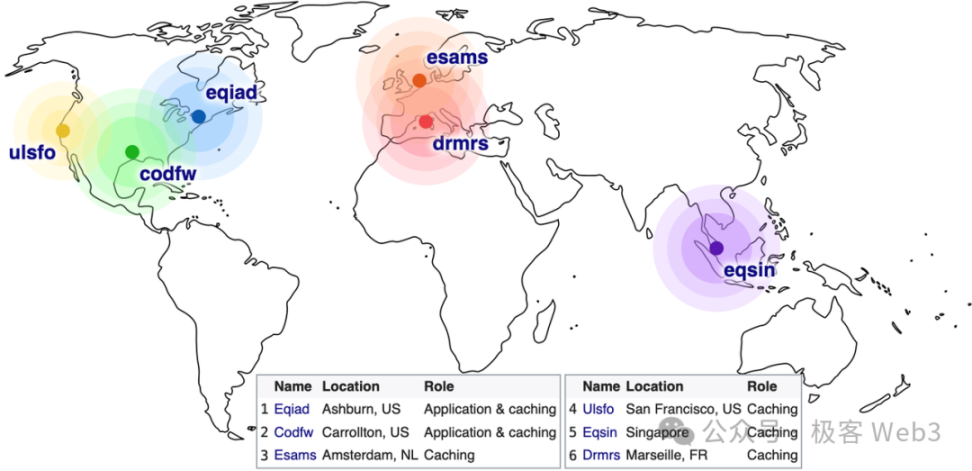
At the same time, Wikipedia relies on the support of a global volunteer community, and the Wikimedia Foundation provides various awards and funding activities worldwide to promote community building, which accounts for about 14% of this expenditure. For example, the Wikimedia Foundation has organized "edit-a-thon" events in some regions, encouraging volunteers to focus on editing specific topic entries to expand the breadth and depth of content. Typical cases include the "Fashion Edit-a-thons" held in multiple countries led by France and the "Wiki4Climate" event focused on climate issues in 2020.
Additionally, the Wikimedia Foundation has invested significant resources in professional services, including legal consulting, external technical support, and accounting audits, to ensure Wikipedia's compliance and operational safety worldwide.
Moreover, the foundation's management expenses also cover office facility leasing and daily management expenditures to maintain internal operations, as well as regularly hosting technical seminars and international editing conferences to promote cooperation and communication within the global volunteer community, which also requires financial support.
The above two parts together account for 15% of total expenditures. Additionally, the Wikimedia Foundation's expenditures on fundraising activities initiated through advertising and payment channels account for 4% of total expenditures.
Challenges for Wikipedia: Fraud, Corruption, and Political Correctness
The sustainable development of any public good is an issue that cannot be ignored. It is undeniable that Wikipedia has performed well in this regard in the past, but it still faces risks and challenges. First, Wikipedia's operational funding primarily relies on user donations. Although this model has sustained the platform's development, its non-self-sufficient economic sources remain highly unstable, and under the impact of large language models, users' willingness to donate to Wikipedia is more easily influenced.
Secondly, as a non-profit organization, if the foundation attempts to increase revenue through typical commercialization methods such as paid APIs, it may trigger external controversies regarding the platform's nature and neutrality. Thus, the instability of Wikipedia's economic sources and neutrality has become a persistent issue, leading to a question that must be addressed.
As the saying goes, "A tall tree catches the wind," Wikipedia relies solely on donations to obtain such a large economic source, which has led to dissatisfaction from the outside world, and the direction of its funds is quite controversial. Rumors of "overfunding" and "fraudulent donations" seem to have never ceased. On one hand, Wikipedia's fundraising campaigns sometimes exaggerate the urgency of its funding needs, even giving the impression that Wikipedia is "on the verge of collapse," leading to misunderstandings about the platform's financial status.
On the other hand, some insiders have provided specific data indicating that Wikipedia's operations do not require as much funding, raising significant suspicions of "personal enrichment."
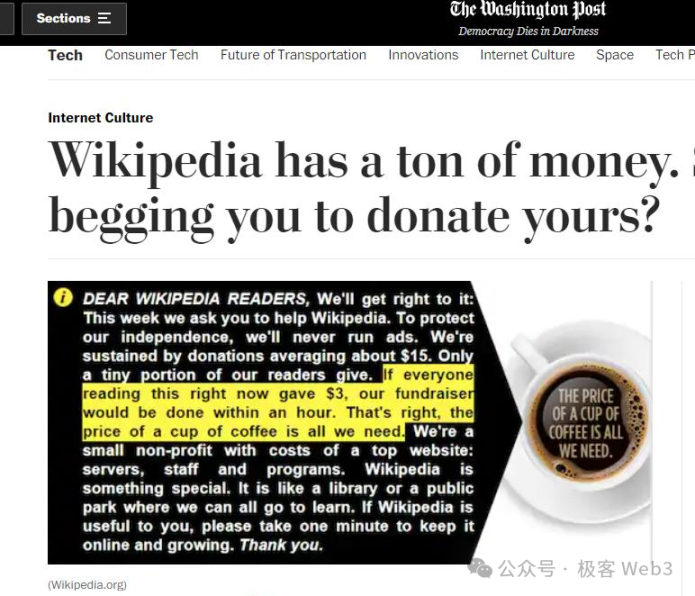
Kolbe, the former co-editor of the Wikipedia community newspaper, stated that he is very familiar with the internal operations of Wikipedia. The donation fund plan launched by the Wikimedia Foundation in 2016 originally aimed to complete a $100 million fundraising goal within ten years, but recent fundraising activities and the density of fundraising advertisements have significantly increased, suggesting that the foundation could complete several times this fundraising scale at least five years ahead of schedule. In contrast, Wikipedia only needs $10 million to operate normally each year.
Previously, a Brazilian editor, Felipe da Fonseca, also remarked, "Using the work of others to ask for money is an ugly, beggar-like posture that is unethical."
Wikipedia's founder, Jimmy Wales, has also frequently faced accusations from the community. Many believe that the cost/benefit ratio of the Wikimedia Foundation is dismal, as the foundation has spent millions of dollars on software development over the years without producing anything effective. Wales admitted in 2014 that he was frustrated by the endless controversies, which accused him of wasting funds on developing software of no practical value without sufficient community consultation and lacking appropriate incremental promotion to rectify mistakes.
In February 2017, The Signpost published a column titled "Wikipedia is Suffering from Cancer," criticizing the Wikimedia Foundation for its continuously increasing annual expenditures without achieving corresponding output results.
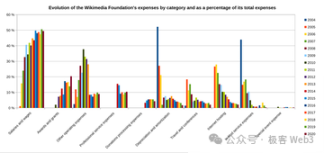
Elon Musk is also a staunch critic of Wikipedia. In 2023, when Musk renamed Twitter to "X," it sparked much discussion, during which Musk jokingly stated that if Wikipedia changed its name from "Wikipedia" to "Dickipedia" for a year, he would immediately donate $1 billion to the Wikimedia Foundation to express his dissatisfaction with Wikipedia's fundraising appeals and rumors of overfunding. Later, Musk also made statements like "Wikipedia is broken" and "Wikipedia is losing its objectivity," among others, which we will not enumerate here.

Musk's remarks may contain some political factors (many Wikipedia entries have a clear anti-Trump bias), and we will not discuss this further, but it indeed represents the negative attitudes of many well-known figures toward Wikipedia.
In response to such rumors, the Wikimedia Foundation explained that the funds raised are not only used for daily operations but also to ensure that Wikipedia has sufficient reserves to respond to potential crises while remaining ad-free, free to read, and unaffected by commercial interests. This financial management strategy can enhance its resilience and help Wikipedia maintain its independence and stability as a non-profit public good.
In addition to the aforementioned issues, Wikipedia's development also faces multiple challenges.
First, as an open editing platform, Wikipedia's content relies on global volunteers for creation and maintenance. While this model encourages broad participation, it also brings about misleading, inaccurate, and even malicious modifications. Although the platform has strict editing rules and review mechanisms, ensuring the reliability and neutrality of content in the AI era and promptly correcting errors will be a challenge that cannot be ignored in its development process.
At the same time, through some third-party data, we can find that although the number of Wikipedia users is increasing year by year, the number of active editors on the platform has significantly decreased in recent years. There are two main reasons for this phenomenon:
- Wikipedia's review mechanism has become increasingly strict, discouraging new editors.
- The powers of administrators have increased, allowing them to block certain editors' accounts and IP addresses, leading to abuse of power.
Additionally, the management is not entirely united; in particular, there are many disagreements between the Wikipedia community and the Wikimedia Foundation, which have at times been brought to the forefront and even involved issues of corruption and abuse of power within the management.
In 2014, the Wikimedia Foundation attempted to install new software on the German version of Wikipedia that would allow for viewing multimedia content, but the German editors of Wikipedia refused to update the user interface, leading to a stalemate. Ultimately, the Wikimedia Foundation forcibly installed the new software and set advanced permissions to prevent editors from reverting to the old version.
On September 13, 2021, the Wikimedia Foundation also launched an action against the Chinese Wikipedia, resulting in the banning of 7 users and the removal of permissions from 12 administrators. Among them, three users were among the top ten most active on the Chinese Wikipedia. Since the Wikimedia Foundation did not provide systematic and detailed evidence or explanations afterward, this incident was viewed by the Wikipedia community in mainland China and Chinese media as an excessive interference in community autonomy, with suspicions of suppressing those holding opposing Western ideologies. Furthermore, there was a lack of procedural justice.
In addition, there has been ongoing competition for dominance between the Wikipedia community and the foundation regarding issues related to resource allocation, such as funding distribution among different language versions, cost settings for software development and infrastructure maintenance, and investments in different regions.
As a public good, Wikipedia relies on credibility to obtain donations for its continued operation, and this credibility is maintained through the authority and comprehensiveness of its content, as well as the decentralized power distribution between the community and the foundation. The publicly known internal conflicts undermine this credibility, and coupled with the impact of AI and other large language models, the quality of Wikipedia's entries and user base may experience irreversible declines, further diminishing its credibility.
At the same time, Wikipedia also faces the issue of insufficient diversity among its volunteers. For example, content related to women, minorities, and non-English regional cultures is often overlooked. Attracting more volunteers and encouraging participation from individuals of different backgrounds and regions is another key for the platform's future development.
Summary
The success of Wikipedia lies not only in its outstanding achievements as a knowledge-sharing platform but also in providing valuable insights for the sustainable development of public goods. As the world's largest open encyclopedia, Wikipedia does not rely on commercial means for profit, striving to maintain content neutrality while successfully addressing the challenges of the internet age, which has profound implications for the management of other public goods.
The history of Wikipedia shows that only through stable economic sources, efficient fund utilization, transparent financial management, and deep community participation can public goods progress steadily in the long term. At the same time, we must recognize that Wikipedia's operations, whether financially, organizationally, or in public opinion, are not perfect and face significant issues that have led to undeniable controversies. The lessons learned from past experiences serve as strong warnings for builders of other public goods.
In the future, the sustainable development of public goods will face more complex environmental changes, including user attention fragmentation and sharply increased operational costs due to the impact of fragmented social media, as well as adjustments to laws and regulations globally and the continuous evolution of user demands. This means that public goods must not only continue to attract user participation but also actively explore more sources of income to pave a robust path for sustainable development.
References
1. Wikipedia from Wikipedia
2. Wikimedia Foundation from Wikipedia
3. Wikimedia Foundation reports/Financial/Audits/2022-2023 - frequently asked questions
4. Wikimedia Foundation 2021-2022 Annual Report
5. Reading Wikipedia in the Classroom
6. Foundation launches Wikimedia Enterprise: the new, opt-in product for companies and organizations to easily reuse content from Wikipedia and Wikimedia projects
7. Wikipedia: Administrators from Wikipedia
8. The Wikipedia Revolution: How a Bunch of Nobodies Created the World's Greatest Encyclopedia
9. Annual Report 2022-2023 - The humans behind a year of impact around the world
10. WIKIMEDIA FOUNDATION, INC. Consolidated Financial Statements
11. Commons: Fashion Edit-a-thons from Wikipedia
12. Edit-a-thon from Wikipedia
13. https://www.nytimes.com/2023/07/18/magazine/wikipedia-ai-chatgpt.html
14. https://www.pingwest.com/a/244154
免责声明:本文章仅代表作者个人观点,不代表本平台的立场和观点。本文章仅供信息分享,不构成对任何人的任何投资建议。用户与作者之间的任何争议,与本平台无关。如网页中刊载的文章或图片涉及侵权,请提供相关的权利证明和身份证明发送邮件到support@aicoin.com,本平台相关工作人员将会进行核查。



